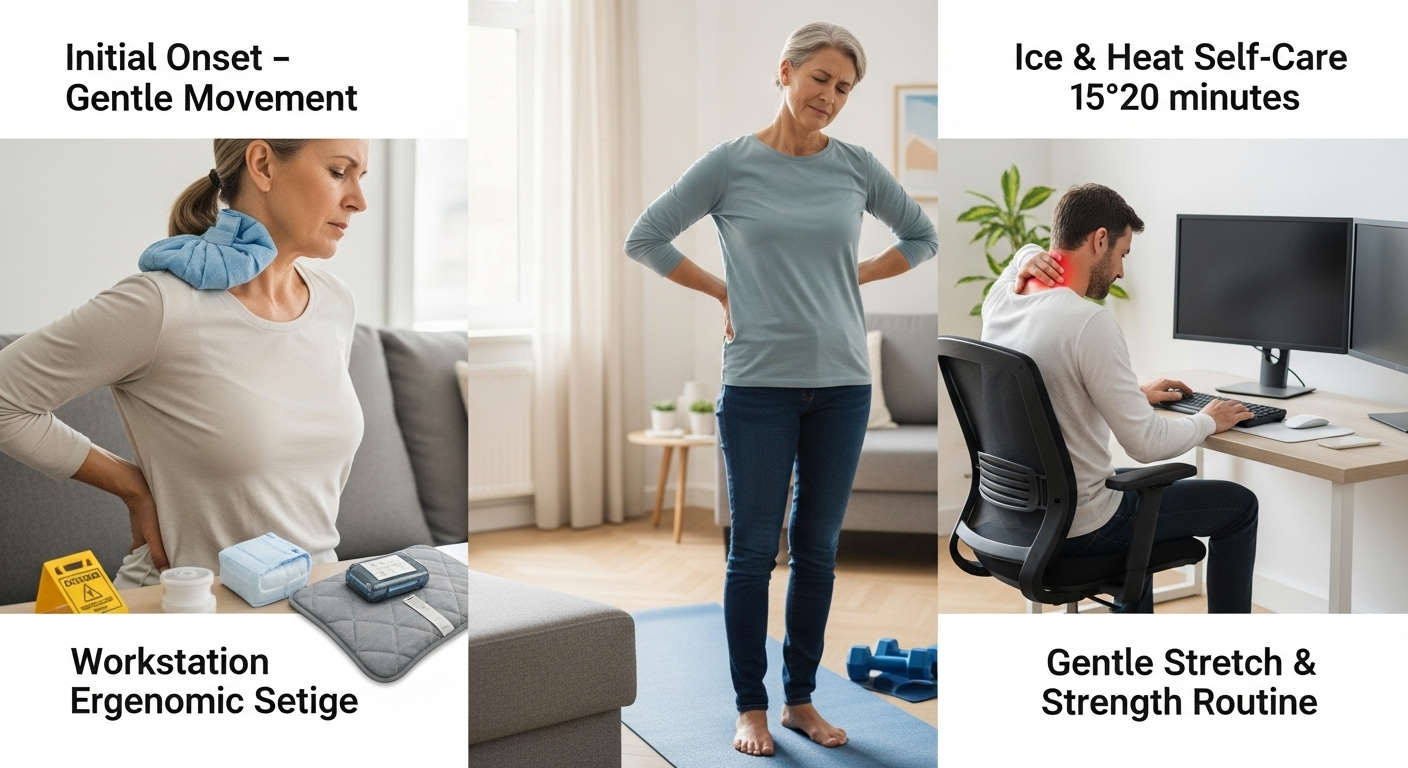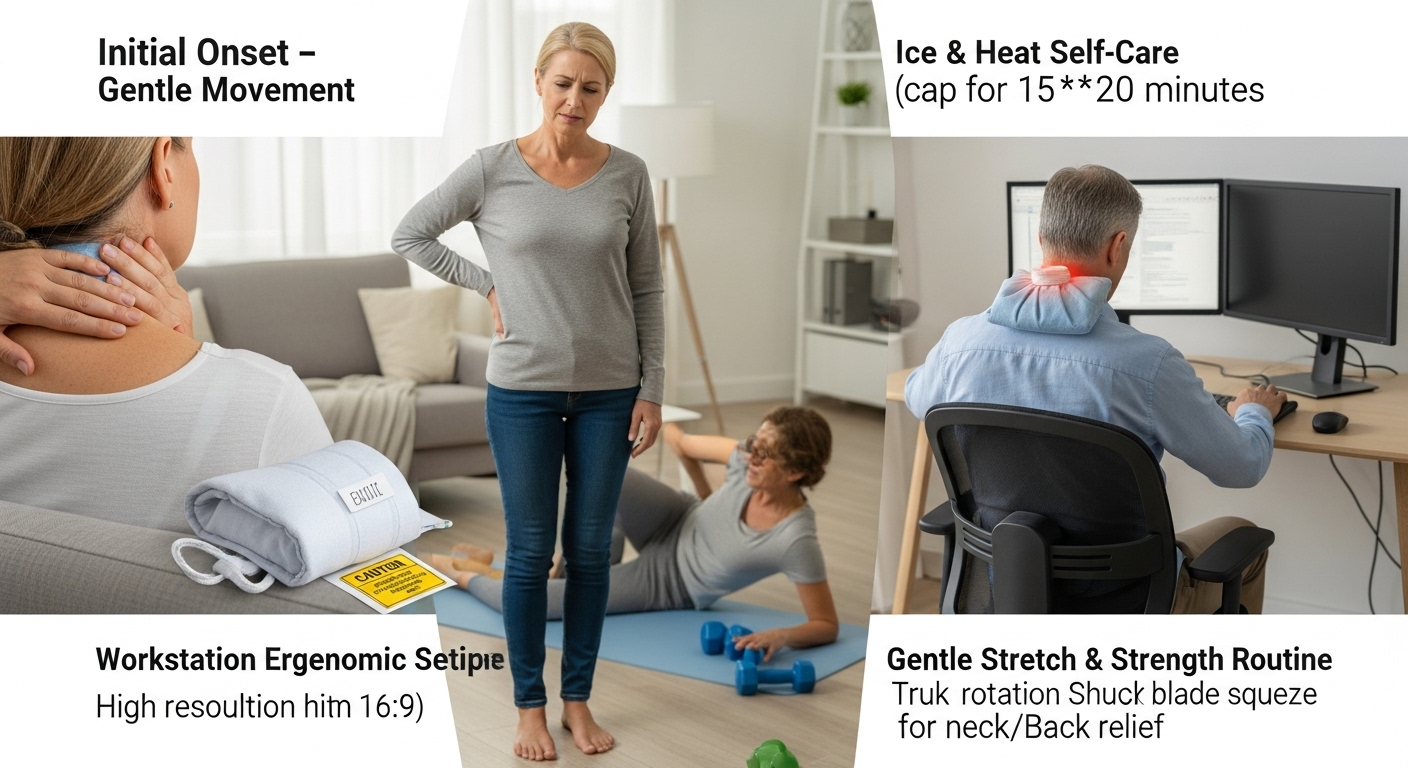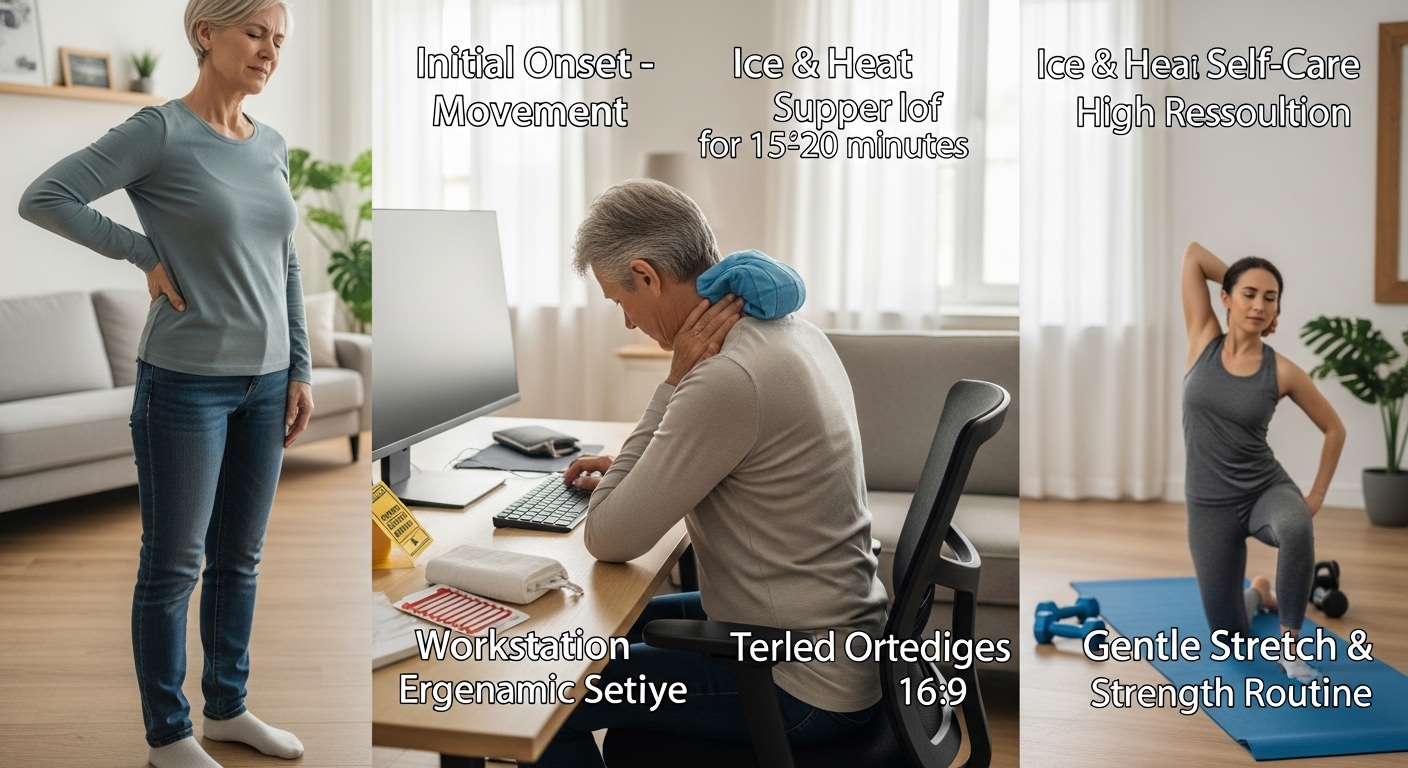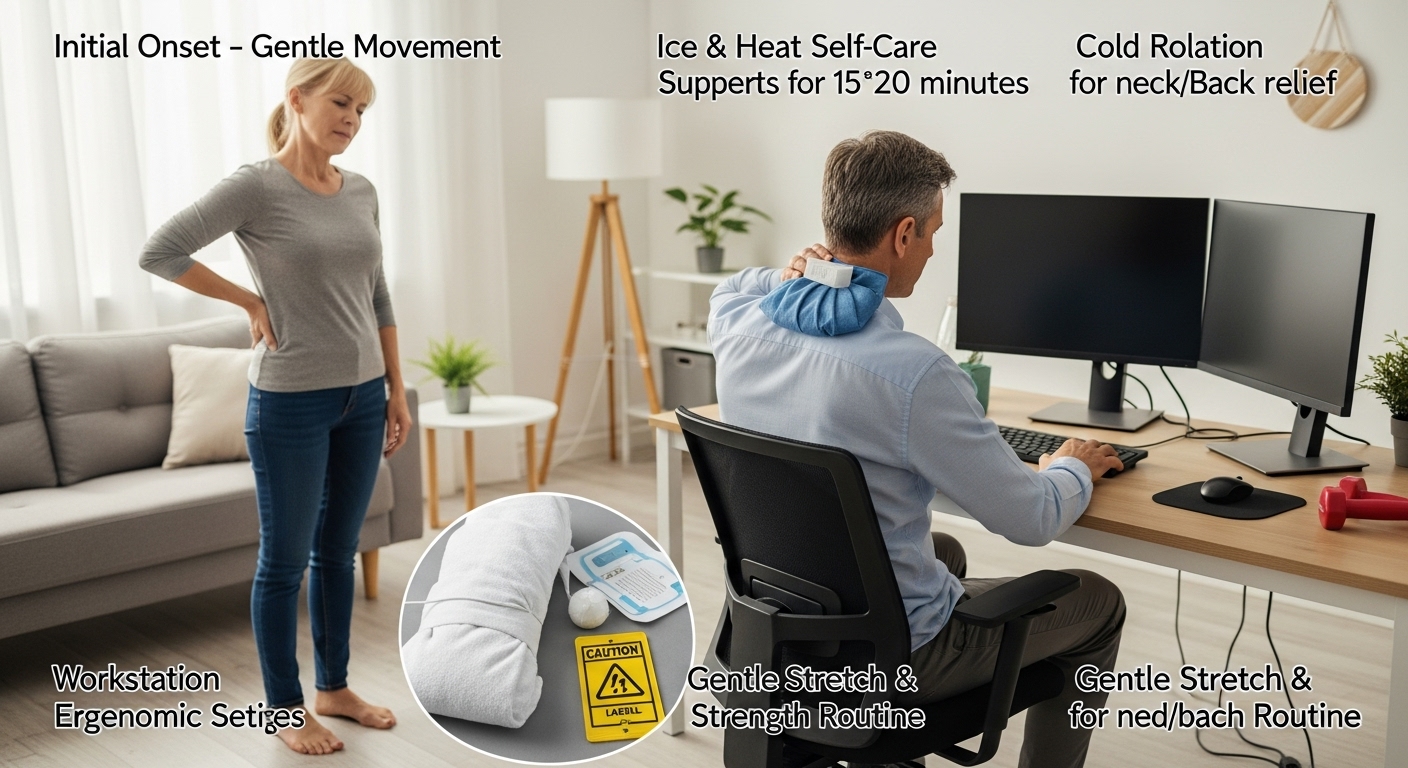Subtotal $0.00
Introduction
Acute neck and back pain—often sudden, sharp or stiff—can disrupt your day and slow you down. The good news: for most people, simple steps taken early can help you recover faster and avoid further flare‑ups. Below are practical, evidence‑based tips to start with.
1. Move carefully, but keep moving
When you first feel acute pain in your neck or back, it’s tempting to stop all movement. But total immobility tends to slow recovery. Instead, ease off heavy loads or twisting, but keep gentle activity going—light walking, mild stretching.
2. Ice first, then heat
For the first 48‑72 hours after an injury or flare‑up: apply ice to the pain area to reduce inflammation and numb the discomfort. After that window, switch to heat to relax muscles and increase blood flow.
3. Use over‑the‑counter pain relief wisely
Non‑steroidal anti‑inflammatory drugs (NSAIDs) like ibuprofen, or simple analgesics like acetaminophen, can help manage pain while tissues settle. Make sure you follow directions and check with a healthcare provider, especially if you have other medical concerns.
4. Correct your posture and workstation
Poor posture is a major driver of neck and back pain. Make sure your monitor is at eye‑level, keep your shoulders relaxed, and avoid slouching. On long drives or at desks, keep your back supported, head aligned, and take regular breaks.
5. Gentle stretching and strength work
After the initial acute phase, start gentle stretches and strengthening exercises: neck rolls, shoulder blade squeezes, trunk rotations, light core work. These help restore mobility, ease the spine and support recovery.
6. Know when to see a professional
Most acute pain improves within a few days or weeks. But if you experience leg or arm weakness, numbness, bladder/bowel changes, or pain that keeps you awake at night—seek professional help.
Conclusion
Acute neck and back pain usually responds well to timely, simple care. The faster you start with gentle movement, correct posture, and smart self‑care, the more likely you’ll avoid prolonged discomfort. If you’re unsure, a specialist evaluation can give you reassurance and direction.
Thank you for subscribing to our email newsletter. Please download our eBook on acute neck and back pain.
Download our top tips for acute neck and backpain





